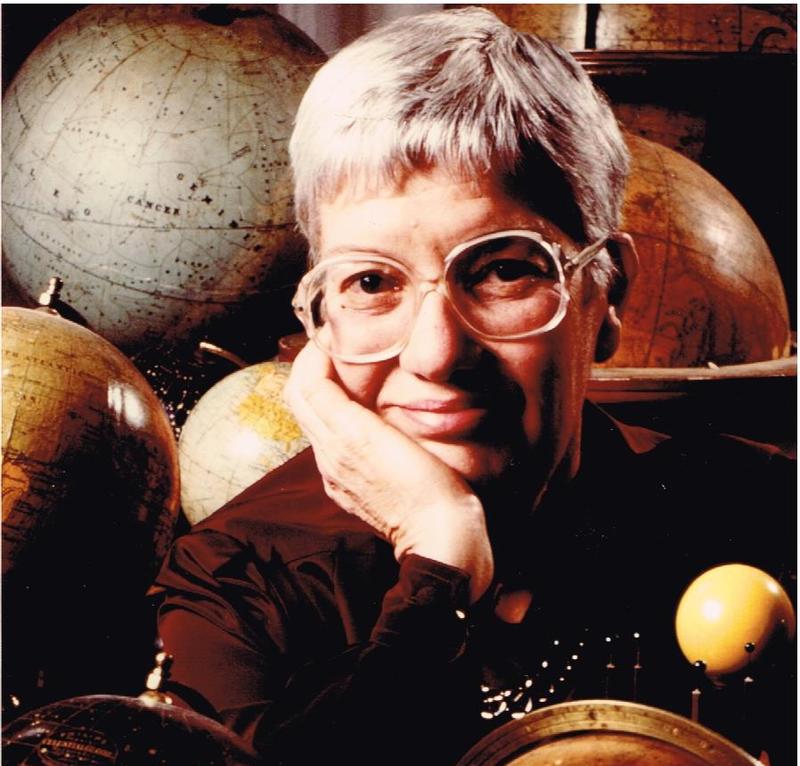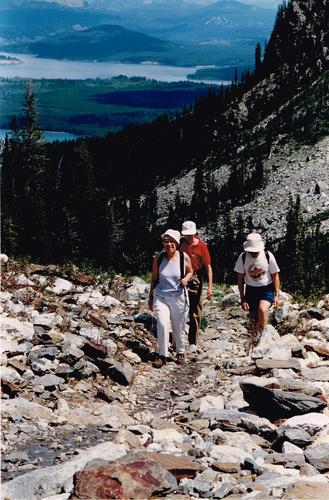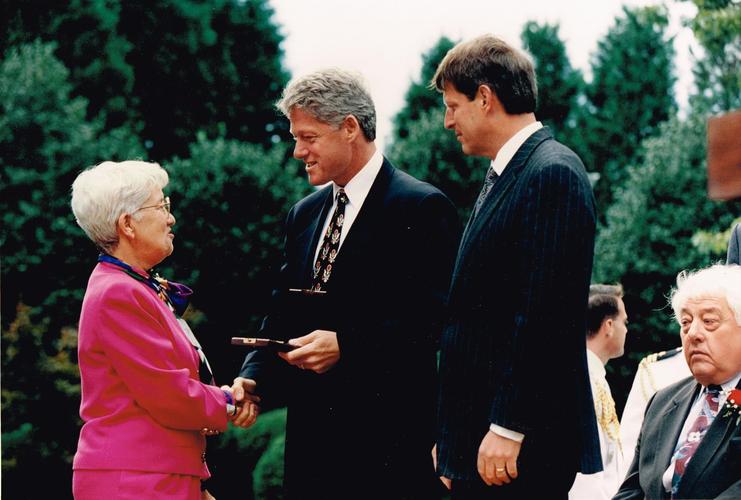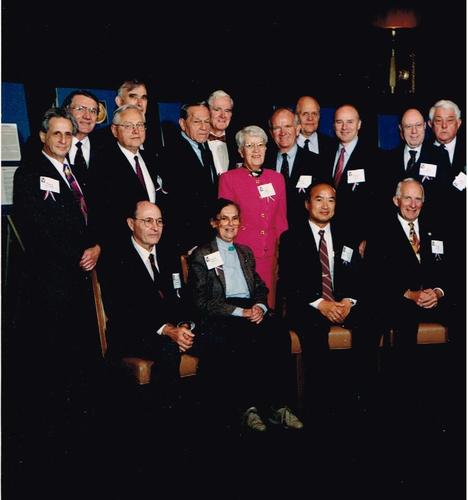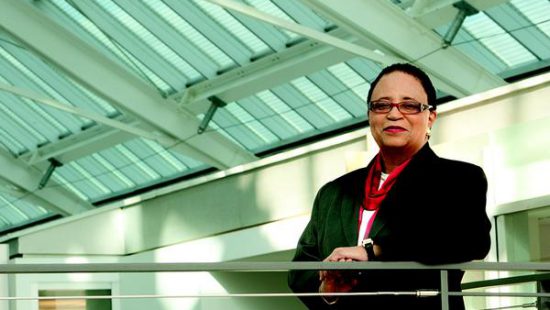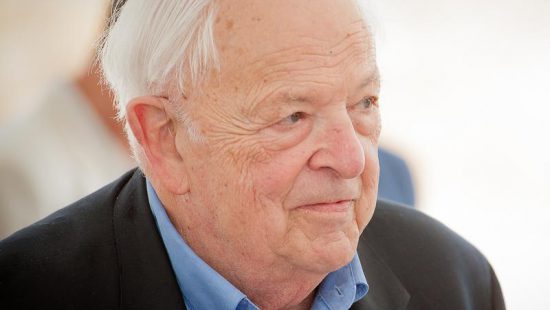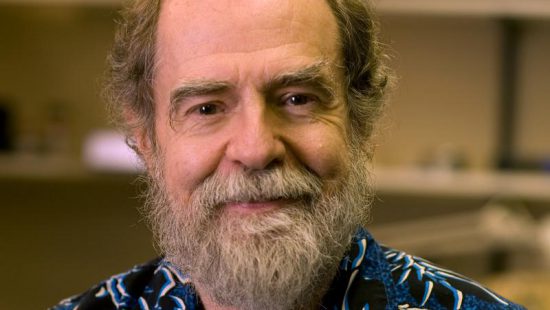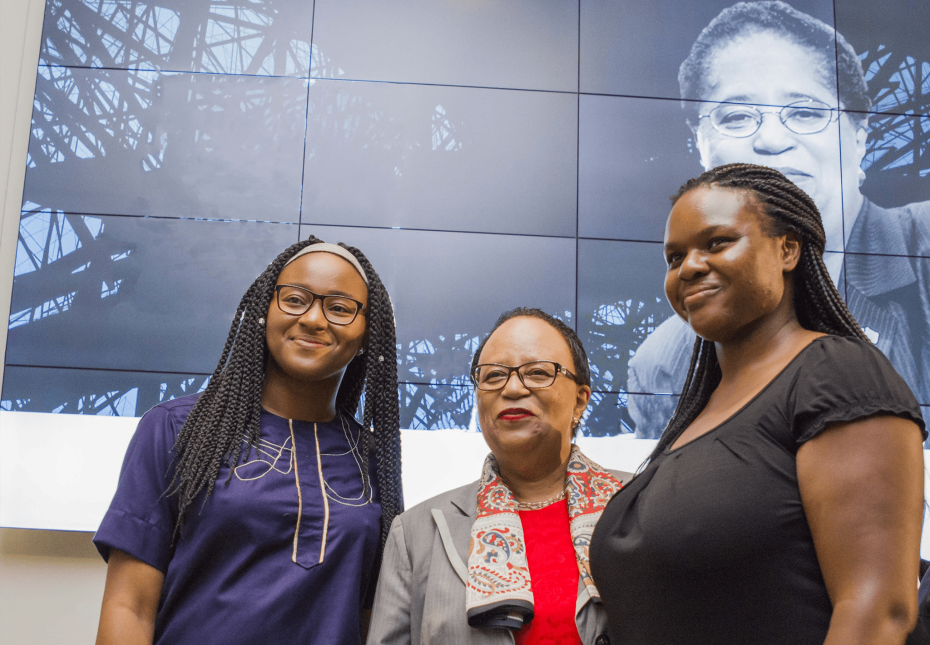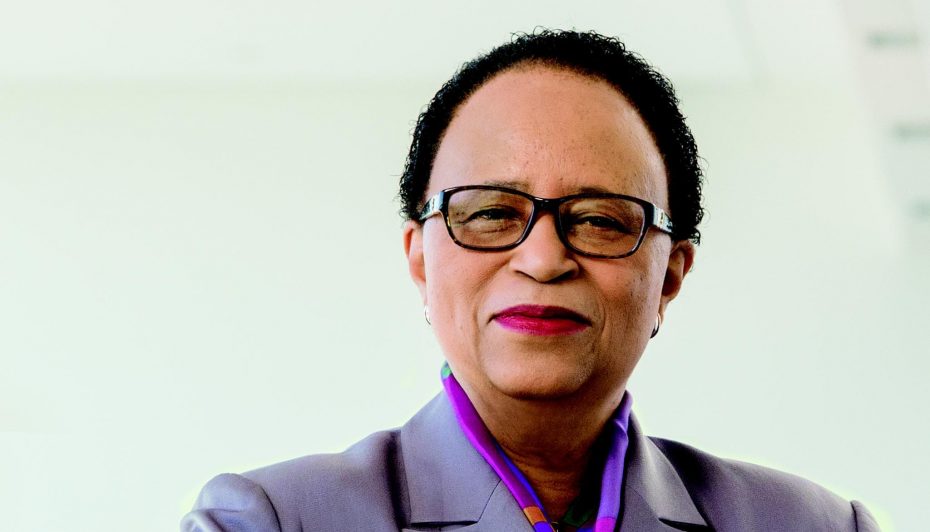From childhood, Vera C. Rubin’s father encouraged her love of astronomy by taking his daughters to amateur astronomy meetings in Washington, D.C., and assisting in her first homemade telescope when she was fourteen. When Rubin graduated from Vassar in 1948, she was the only astronomy major in her class. Rubin went on to receive her Ph.D. from Georgetown University.
Rubin pioneered work on galaxy rotation rates, and uncovered the discrepancy between the predicted angular motion of galaxies and the observed motion by studying galaxy rotation curves. Galaxies rotate so quickly that they would fly apart if the gravity of their constituent stars was all that was holding them together. Rubin postulated that a huge amount of unseen mass must be holding them together, a phenomenon that became known as the galaxy rotation problem.
Rubin’s groundbreaking research confirmed the existence of dark matter — one of the most important milestones in the history of understanding space — by proving beyond doubt that galaxies spin faster than Newton’s Universal Law of Gravitation dictates they should. Since her initial discovery, it has become apparent that more than 90% of the universe is composed of dark matter.
By Jennifer Santisi

